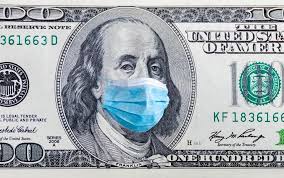One of the hallmarks of Big Football over the past 30 years is how remote mega-clubs have got from supporters.
Ninety years ago, players and fans would take the same trams to the ground. Even 40 years ago it was only momentarily surprising when a boyhood hero walked into the bank branch where my father worked to get a mortgage. Fat chance of that now.
If any really big club has countered this trend, it is probably Liverpool, in large measure through its exemplary commitment to the Hillsborough 96 and their families. This is why the – reversed – decision to furlough some staff members was potentially so damaging.
At the next level down, the Merseysiders’ recent Champions League opponents Atlético Madrid have retained a strong connection with their support, essentially by dramatising their collective experience that life is a relentless battle against the odds. It has done them no harm in this regard to be based in the same city as the sport’s ultimate aristocrats.
Until COVID-19 hit, this growing aloofness of the big clubs had not seemed to matter. If anything, it fed the tendency to treat clubs and star players as quasi-religious objects of worship. Meanwhile, digital tech combined with judicious brand-building to create new fans in every continent who were only ever destined to enjoy a remote relationship with their club no matter what the circumstances.
With football, in common with other sports, having been stopped dead in its tracks by this new plague, the question is, Will this aloofness now come back to bite them?
With the Bundesliga, one of Europe’s Big Five leagues, talking about an early May behind-closed-doors restart, we may soon begin to find out the answer.
In an important sense, plans of this nature merely underline the big leagues’ “otherness”. It would make no sense at all for the vast, vast majority of professional or semi-professional football competitions around the world to contemplate matches without paying spectators. If anything, it would make their current financial predicaments more intractable.
Why are the Big Leagues different? Because they have for years generated far more income from TV than their live audiences. Because, while a lot of fans are probably locked into their season tickets whether or not the games get played, the broadcasting companies would want a refund if the season is scrapped. And because, while the sport has done little or nothing over the years to dispel the very widespread impression that it is dripping with wealth, the majority of clubs operate on slender margins when they are not loss-making. A few months of having to pay the wages with no contribution from the principle income stream would be very costly indeed, even for the billionaire owners behind many clubs.
UEFA’s fiscal 2018 club licensing benchmarking report delineates the gulf between the big boys and the rest very clearly. Its analysis of 55 national European leagues shows that only three outside the top 20 derive even 10% of their revenue from television. Even within this top 20, only Turkey and Portugal are remotely as TV-dependent proportionately as the Big Five.
Within this Big Five – the Premier League, Bundesliga, La Liga, Serie A and Ligue 1 – the proportion of aggregate revenue derived from domestic TV ranges from 34% to 53%. The equivalent range for gate receipts is 12% to 18%.
The Bundesliga, somewhat ironically, is actually the least TV-dependent of the Big Five leagues, although it still accounts for over one-third of revenue. The reason why it may be the first to return to action is that the German Government appears to have been significantly more effective in combating coronavirus than its counterparts in the other four countries.
What happens next will be fascinating.
In one sense, there can be no clearer way of telling live fans they are expendable than by staging games they are unable to attend. It is the logical extension of the endless jiggling around with kick-off times to suit broadcast schedules that regular fans have had to become accustomed to.
In another sense, the vast, echoing, empty arenas will emphasise how much supporters are missed, and how much they contribute. Only now they contribute chiefly as “extras”, rather than the life and soul of the community that spawned the club in the first place.
What will the viewing figures be like? I would guess pretty good: large droves of us are in lockdown, after all; alternative attractions are limited; there are only so many times you can watch Notting Hill.
But what about when restrictions ease and normality, however altered, resumes? Will we revert at once to proclaiming our lack of worthiness when some pampered idol pulls off a new trick? Or will a sharpened sense of our own mortality linger and engender changes in our outlook and priorities?
On such questions the medium-term future of Big Football’s deceptively fragile business model is now set to depend.
David Owen worked for 20 years for the Financial Times in the United States, Canada, France and the UK. He ended his FT career as sports editor after the 2006 World Cup and is now freelancing, including covering the 2008 Beijing Olympics, the 2010 World Cup and London 2012. Owen’s Twitter feed can be accessed at www.twitter.com/dodo938.

